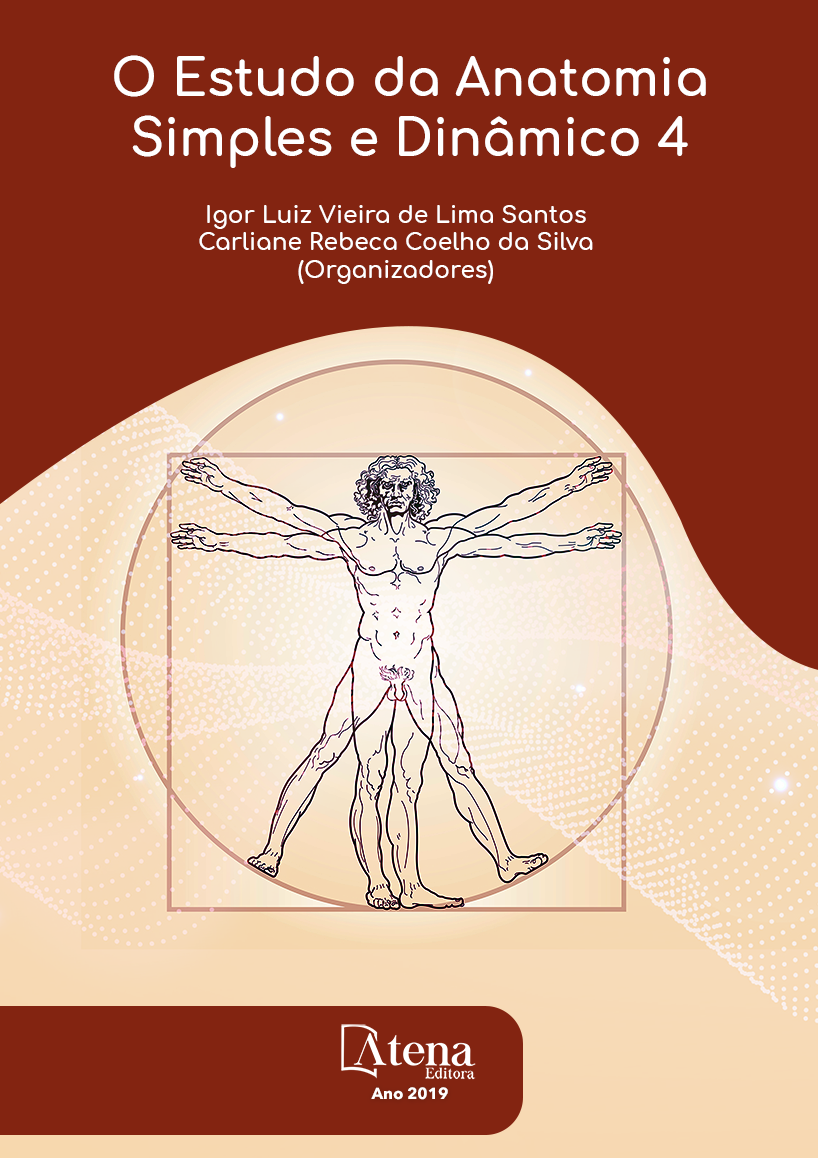
ANÁLISE ANATÔMICA DAS DEFORMIDADES TORÁCICAS: UMA REVISÃO DE LITERATURA
Introdução: Existe uma variedade
de deformidades da parede torácica anterior,
as mais comuns são as pectus excavatum
e a pectus carinatum, e ambas podem trazer
transtornos importantes. O pectus excavatum,
é uma deformidade por depressão do esterno
e das cartilagens costais inferiores, levando a
diversos graus de severidade. Os pacientes,
na maioria das vezes, são assintomáticos,
sendo a queixa principal de ordem estética,
podem apresentar abdômen protuberante,
arritmias, principalmente atriais que podem
ser atribuídas à compressão do coração ou
fatores emocionais. O pectus carinatum resulta
do crescimento excessivo das cartilagens
junto ao esterno, provocando a sua projeção
para a frente. Pode ocorrer como uma lesão
congênita solitária ou em associação com
outras anomalias congênitas. São relatadas
palpitações, dispnéia, e sibilos, que se
acentuam com o exercício, e desaparecem
com a cirurgia, na ausência de outra doença.
Os sintomas presentes são decorrentes
de doença associada, ou perturbações
psicológicas. Material e Métodos Introdução:
Trata-se de uma revisão integrativa utilizando
a base de dados SciELO, LILACS e PubMed,
publicados nos últimos 10 anos. Resultados:
O tratamento não cirúrgico de ambas são as
sessões de fisioterapia, atividades físicas,
ortopédico conservador e os cirúrgicos, como
por exemplo, a cirurgia esternocondroplastia, a
técnica de Nuss serve apenas na exacavatum.
O diagnóstico é clínico das duas deformidades,
baseado na observação e exame de imagem.
Conclusão: Tanto o pectus carinatum quanto
o excavatum apresentam um bom prognóstico.
Se tratados adequadamente não impedem a
boa qualidade de vida.
ANÁLISE ANATÔMICA DAS DEFORMIDADES TORÁCICAS: UMA REVISÃO DE LITERATURA
-
DOI: 10.22533/at.ed.44719250923
-
Palavras-chave: Tórax em Funil; Pectus Carinatum; Anormalidades Congênitas.
-
Keywords: Funnel Chest; Pectus Carinatu; Congenital Abnormalities.
-
Abstract:
Introduction: There is a deformity variation on the anterior wall of
thorax. The most common are the pectus excavatum and pectus carinatum, both can
bring disturbing issues. The pectus excavatum is a back deformity by depression of
the sternum and cartilage, eventually come along with deformity of extremities in the
low part of the ribs. Taking to many degrees of severity. The patients, most of the
time, don’t feel the symptoms, but they can complain about aesthetics’ issues, like
huge belly, arrhythmias, mostly atrial which can be attributed to a heart compression
or emotional factors. The pectus carinatum results of the excessive grown of cartilage
near to the sternum, causing the projection to the front. It can be like a congenital injury
alone or the association with other anomalies. It is related to palpitations, dyspnea and
wheezing which increase with exercise in the absence of other disease. The symptoms
are duo to associated disease or psychological disturbance. Material and methods:
The article is an integrative review using the database SciELO, LILACS and PubMed,
published in the last ten years. Results: The non-surgical treatment of both deformities
is summed up to physiotherapy sessions, exercises, orthopedic conservative and the
surgical is, for example, the sternocondroplasty, and the Nuss technical is only for
excavatum. The diagnosis is clinical for both of the deformities based on observation
and with image exams. Conclusion: The pectus carinathm and pectus excavatum
have a good prognosis if treated properly and don’t prevent the patient’s life quality.
-
Número de páginas: 15
- Marcus Vinícius Quirino Ferreira
- Anna Beatriz Gallindo Machado Lacerda Santiago
- Ingrid Botelho Ribeiro
- Maíra Rodrigues Teixeira Cavalcante
- Gabriela Rocha Nascimento
- João Pedro Cavalcante Gomes Paranhos
- Erica de Brito Marques Cruz
- Maria Eliza Alencar Nemézio
- Ingrid Ramalho Dantas de Castro


